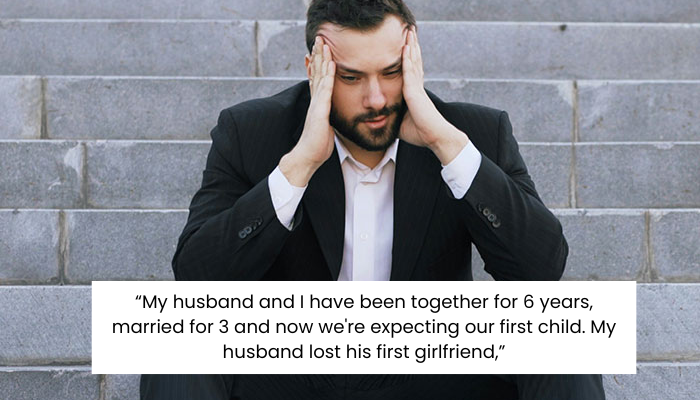Naming Our Baby After His Late Girlfriend? I Said No Now I’m the Villain
OP (Original Poster) and her husband have been together for 6 years, married for 3, and are now expecting their first child. Things seemed emotionally secure between them, even with the shadow of his late girlfriend, Emmy, who tragically passed when they were both 21. OP was always respectful about that part of his past. She didn’t mind that he kept in contact with Emmy’s parents or occasionally talked about her. After all, grief doesn’t disappear just because someone has moved on.
But things got weird when the baby naming conversation came up. Her husband revealed he had always planned to incorporate Emmy’s name—or her middle name, Grace—into their future child’s name. OP was caught off guard. Not only had he never mentioned this before, but he insisted on doing it whether OP liked it or not. He proposed slipping it in as a second middle name, framing her resistance as “jealousy” of someone who had passed away. When OP pushed back, explaining how it felt emotionally wrong, the conversation spiraled into accusations, emotional manipulation, and—just to make it worse—he involved his sister, who then attacked OP’s maturity.
So, AITA for saying no? Or is this one of those grief-and-love balancing acts that doesn’t really have a “right” answer?
Can you ever really move on after losing the love of your life?

This woman started to worry about how much her husband was still holding on to the past
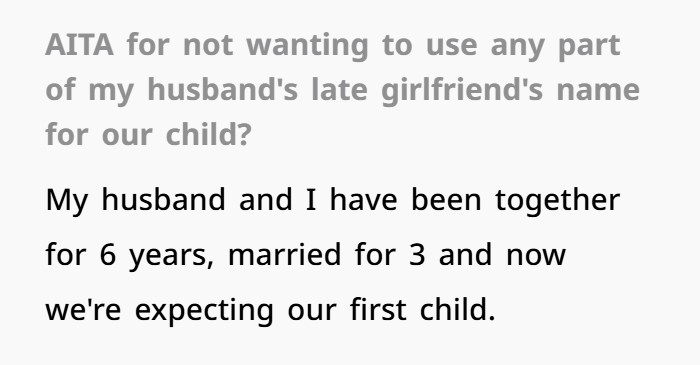
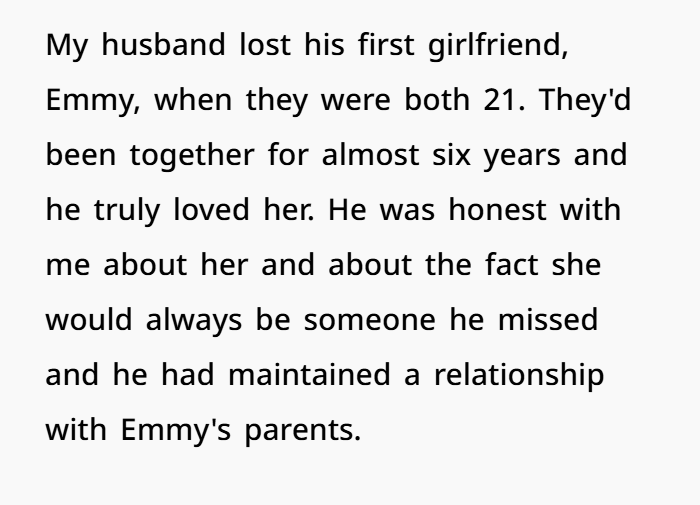

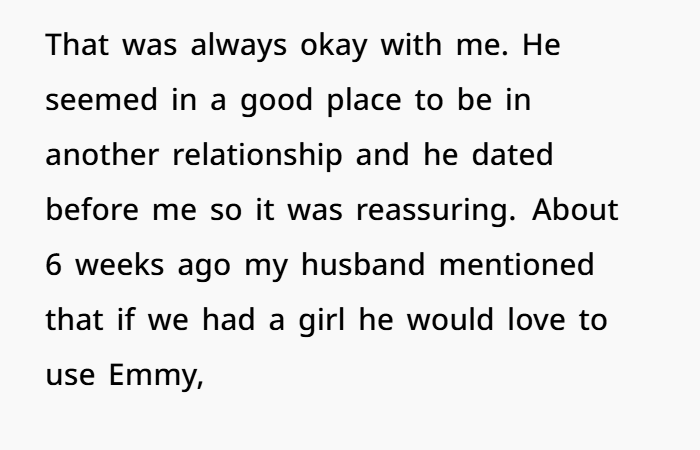
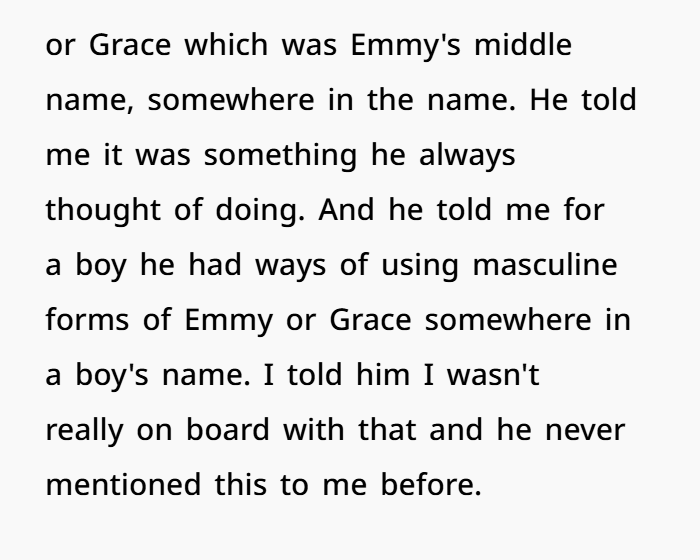
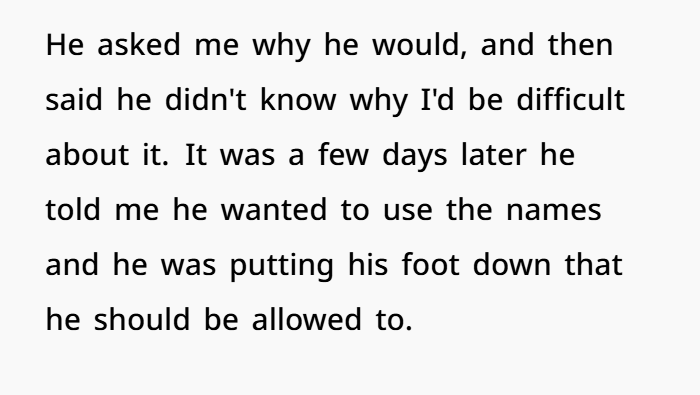
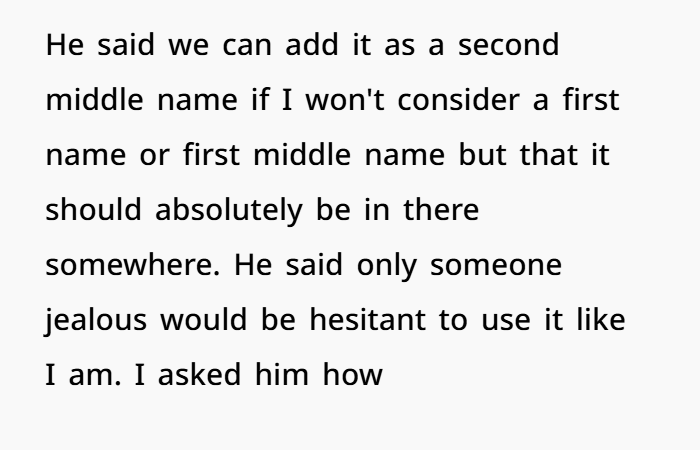
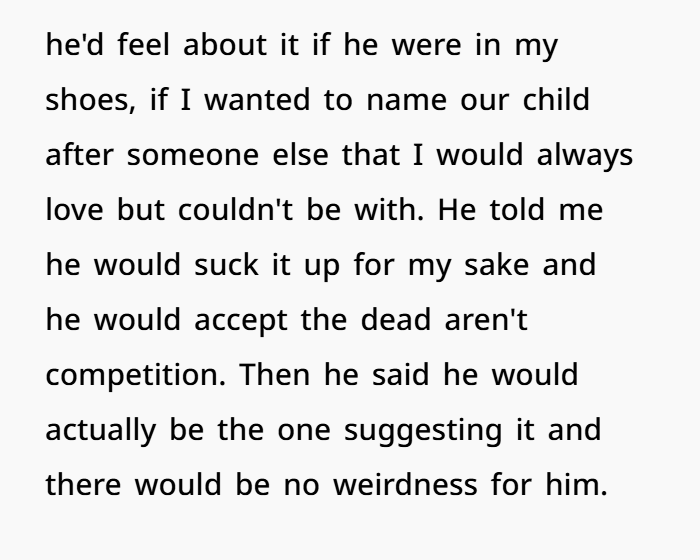
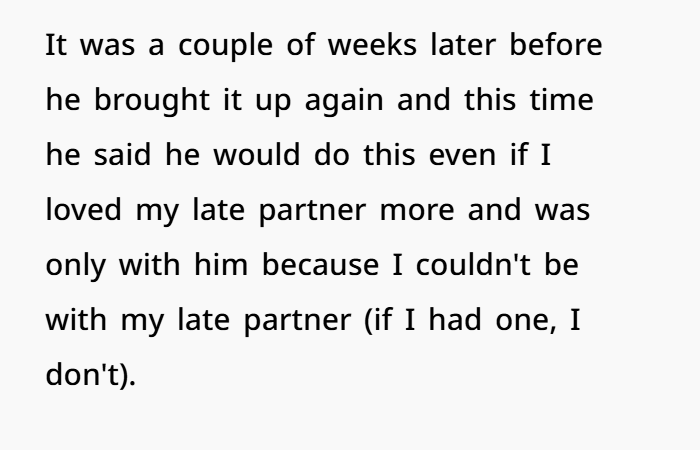
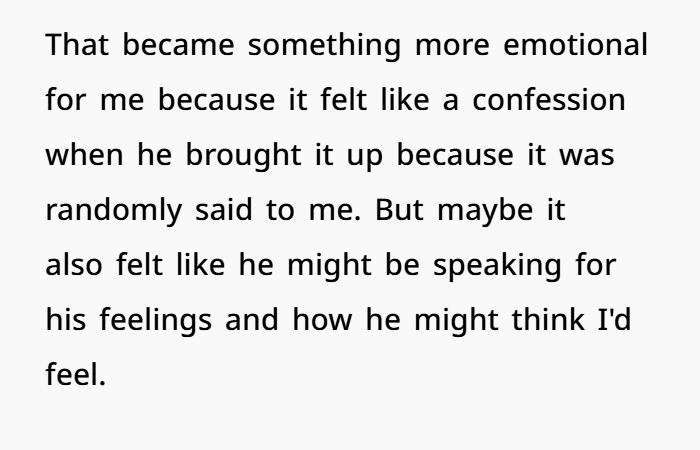

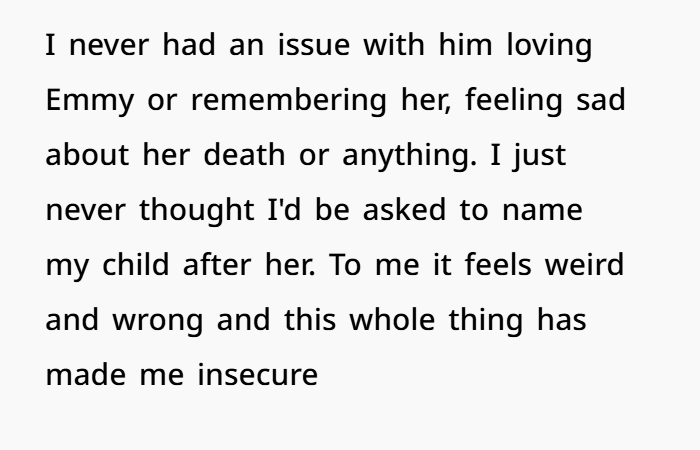
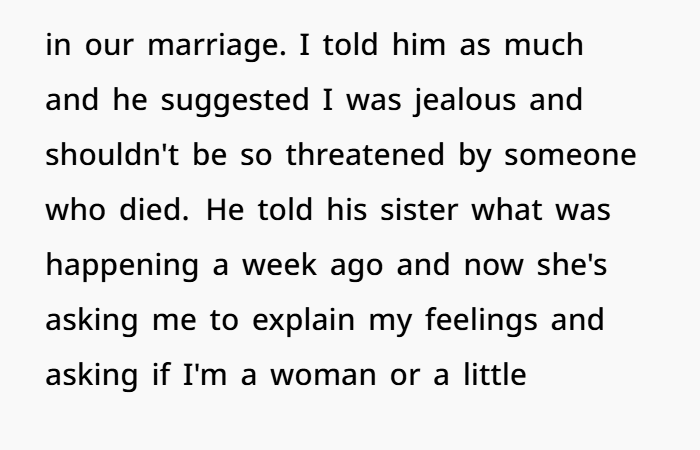
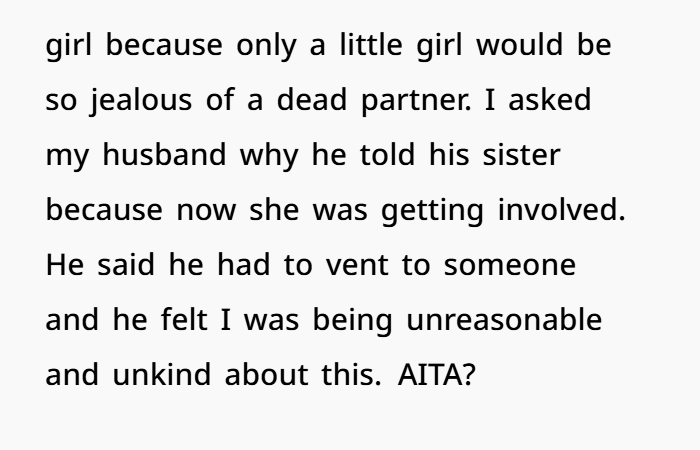
Naming a child is one of the most emotional, symbolic, and personal acts new parents can experience. It’s not just about choosing something pretty or meaningful—it’s about legacy, identity, and in many cases, compromise. But what happens when one parent wants to name their child after a lost love? That’s not just a name—it’s a whole history crashing into the future.
Let’s unpack the complexity behind this kind of situation.
1. 💔 Grief Isn’t Linear—But Love Needs Boundaries
Grief doesn’t disappear. That’s true. Especially not for someone who’s lost a significant other at a young age. Psychologists say that “continuing bonds”—a term used in grief therapy—often exist after the death of a loved one. People keep photos, visit graves, even talk to them sometimes. None of that is weird or wrong.
But where it can get problematic is when grief is prioritized over the emotional needs of the living partner. Dr. Susan J. Zonnebelt-Smeenge, a grief expert, notes that while keeping the memory of someone alive is normal, “you also have to let your heart grow to hold new love without making the new person feel like a placeholder.” Using a late partner’s name for a shared child steps into that tricky territory—especially if the living partner isn’t fully on board.
2. 👶 Baby Names Should Be Joint Decisions—Not Emotional Ultimatums
Healthy relationships run on respect and compromise. Even if someone really wants a particular baby name, pushing it on the other partner—especially after they’ve said no—is a red flag. The American Psychological Association (APA) states that parenting decisions should ideally be collaborative, and forcing a name that carries emotional baggage violates that principle.

Also, the way OP’s husband handled this—first springing the name idea late into the pregnancy discussion, then saying he’d “put his foot down,” and even involving his sister—is a classic example of triangulation. That’s a manipulation tactic where someone brings in a third party (like the sister) to pressure or shame the other person into agreeing.
That’s not love. That’s control.
3. 😬 You’re Not “Jealous”—You’re Human
Let’s kill the myth: Not wanting to name your baby after your partner’s dead ex does NOT make you insecure. It makes you reasonable. You’re building a new life with this person. You want to choose a name that reflects your journey together—not a memorial to a past relationship you were never part of.
Multiple Reddit threads and parenting forums (like r/relationships and BabyCenter) are filled with posts from people feeling second-best to a late partner. And while honoring the dead is noble, doing it at the cost of a living partner’s peace is not.
Jealousy of the dead isn’t really jealousy—it’s a feeling of being unseen. Like you’re a supporting character in your own story.
4. 📜 Legal and Cultural Considerations
From a legal standpoint, no one can “force” a name unless both parents agree (in most jurisdictions). Naming laws vary, but the U.S., UK, and Canada generally require signatures from both parents for a child’s name on the birth certificate.
Culturally, using a deceased person’s name can be either deeply respectful or painfully awkward—depending on the context. In Jewish traditions, for example, it’s common to name a child after a deceased loved one. But even then, it’s typically a family member, not an ex.
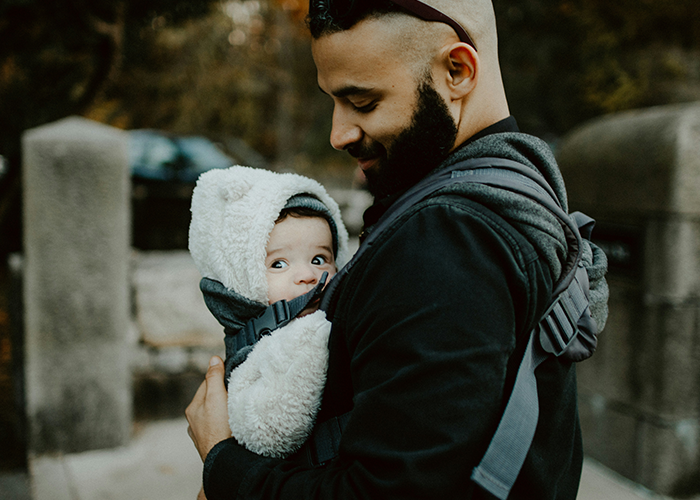
In other cultures, naming a baby after someone who died tragically (like in an accident or illness) is avoided altogether. It’s believed to invite bad luck or spiritual unrest.
So… it’s not just about feelings. It’s also about meaning, tradition, and emotional impact.
5. 🧠 Emotional Impacts on the Child
Let’s look ahead for a second. Imagine this child grows up and learns their name was taken from dad’s ex-girlfriend who died young. That could mess with their identity. Psychologists call this “inherited grief,” where a child unconsciously absorbs the emotional weight of family trauma they didn’t experience themselves.
There’s also the issue of favoritism. What if this child feels like they’re living in someone else’s shadow? Or worse, like they were created to fill a void?
A 2021 study in the Journal of Family Psychology found that children who are named after deceased relatives or people with unresolved emotional stories sometimes develop pressure-filled identities—feeling they have to live up to something they never chose.
6. 💬 Reddit Verdict? Most Would Say NTA
Similar posts across subreddits like r/AITA or r/relationship_advice overwhelmingly side with OPs in her shoes. Users often say it’s a “boundary test,” and that giving in sets a precedent for more one-sided emotional decisions in the future.
You’re not trying to erase Emmy. You’re just asking for a future that isn’t haunted by the past. That’s more than fair.
Even the woman behind this story didn’t see it coming
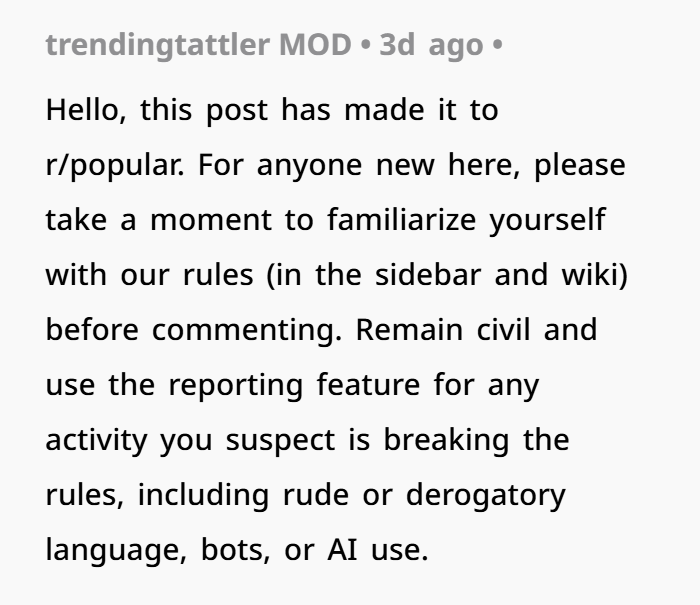
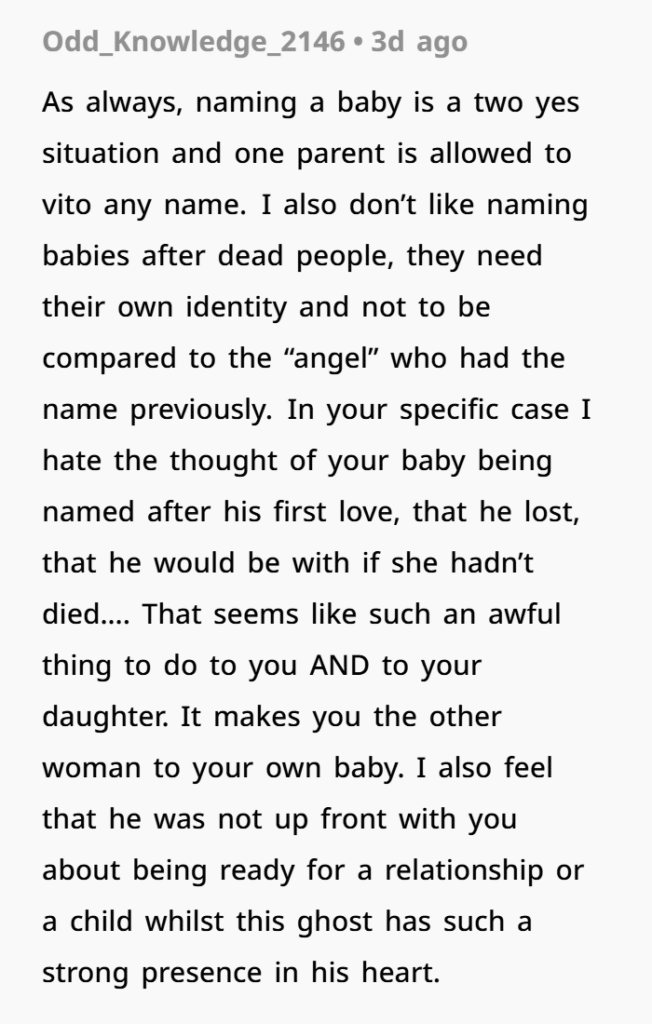
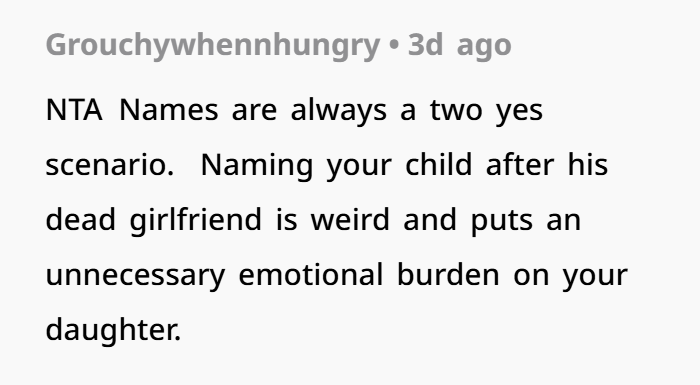
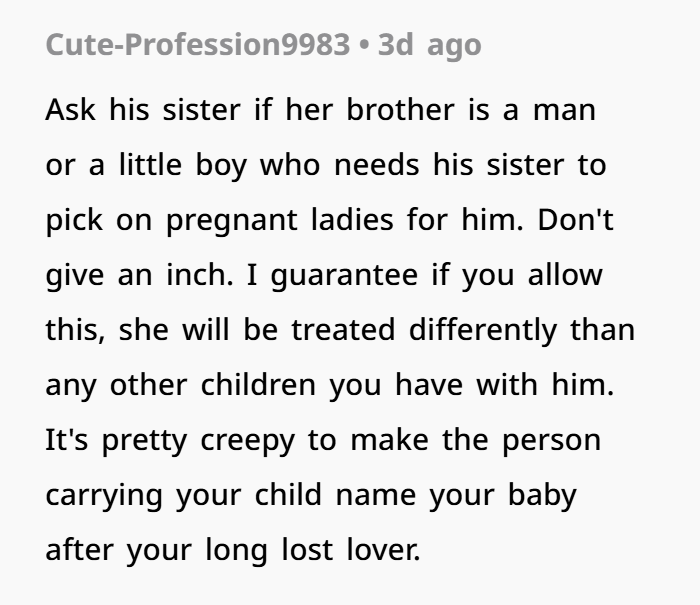
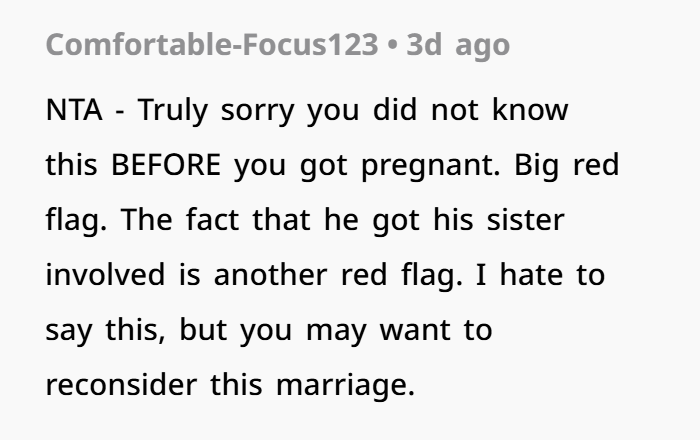
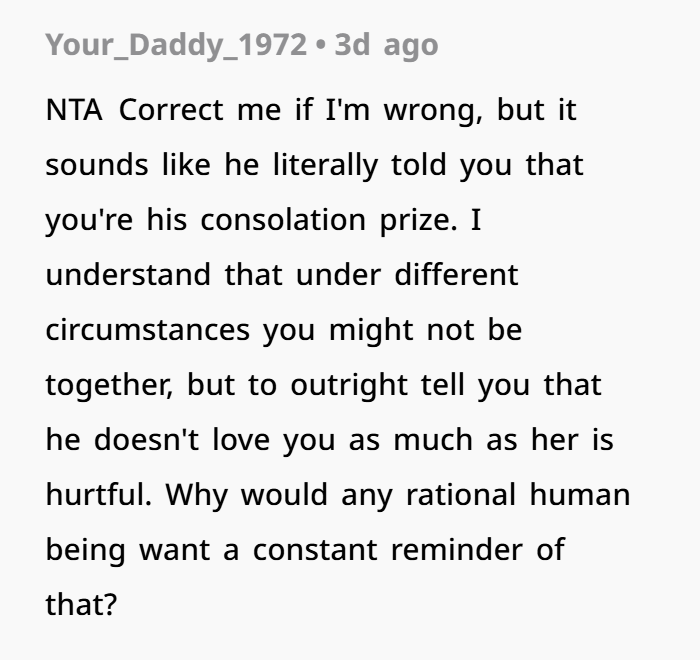
Look, this isn’t about disrespecting the dead. It’s about respecting the living relationship you’re in now. Wanting a name that represents your love story isn’t petty. It’s actually kind of beautiful.
Your husband needs to recognize that honoring Emmy shouldn’t come at the cost of making you feel like a runner-up. If he doesn’t? That’s a whole different conversation.

